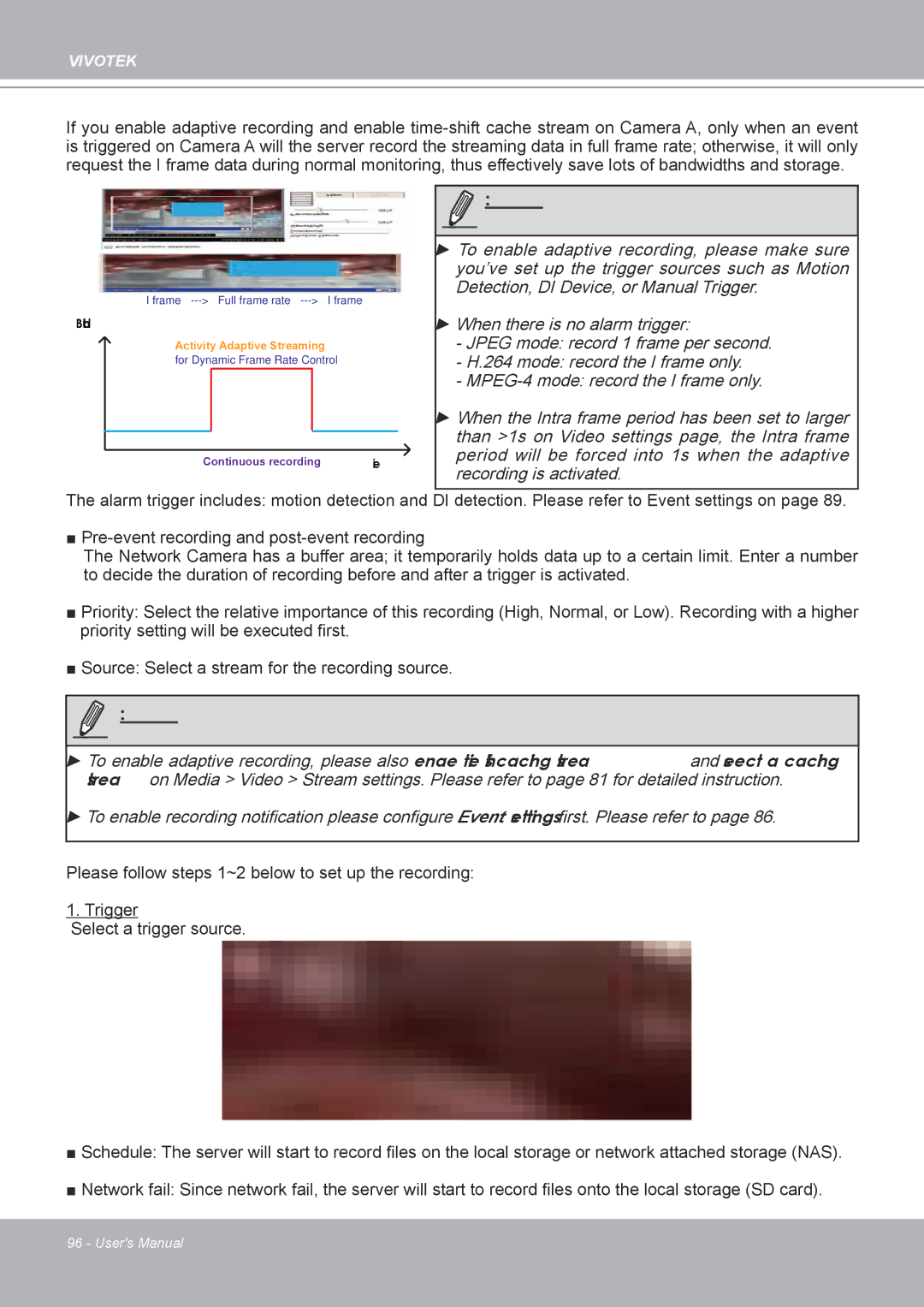
VIVOTEK
If you enable adaptive recording and enable
|
|
| NOTE: |
|
|
| ► To enable adaptive recording, please make sure |
Bandwidth |
|
| you’ve set up the trigger sources such as Motion |
|
| Detection, DI Device, or Manual Trigger. | |
I frame | I frame |
| |
|
| ||
Bandwidth |
|
| ► When there is no alarm trigger: |
Activity Adaptive Streaming |
|
| - JPEG mode: record 1 frame per second. |
for Dynamic Frame Rate Control |
| - H.264 mode: record the I frame only. | |
|
|
| - |
|
|
| ► When the Intra frame period has been set to larger |
|
|
| than >1s on Video settings page, the Intra frame |
Continuous recording |
| Time | period will be forced into 1s when the adaptive |
| recording is activated. | ||
|
|
| |
The alarm trigger includes: motion detection and DI detection. Please refer to Event settings on page 89.
■
The Network Camera has a buffer area; it temporarily holds data up to a certain limit. Enter a number to decide the duration of recording before and after a trigger is activated.
■Priority: Select the relative importance of this recording (High, Normal, or Low). Recording with a higher priority setting will be executed first.
■Source: Select a stream for the recording source.
NOTE:
►To enable adaptive recording, please also enable time shift caching stream and select a caching stream on Media > Video > Stream settings. Please refer to page 81 for detailed instruction.
►To enable recording notification please configure Event settings first. Please refer to page 86.
Please follow steps 1~2 below to set up the recording:
1. Trigger
Select a trigger source.
■Schedule: The server will start to record files on the local storage or network attached storage (NAS).
■Network fail: Since network fail, the server will start to record files onto the local storage (SD card).
96 - User's Manual
